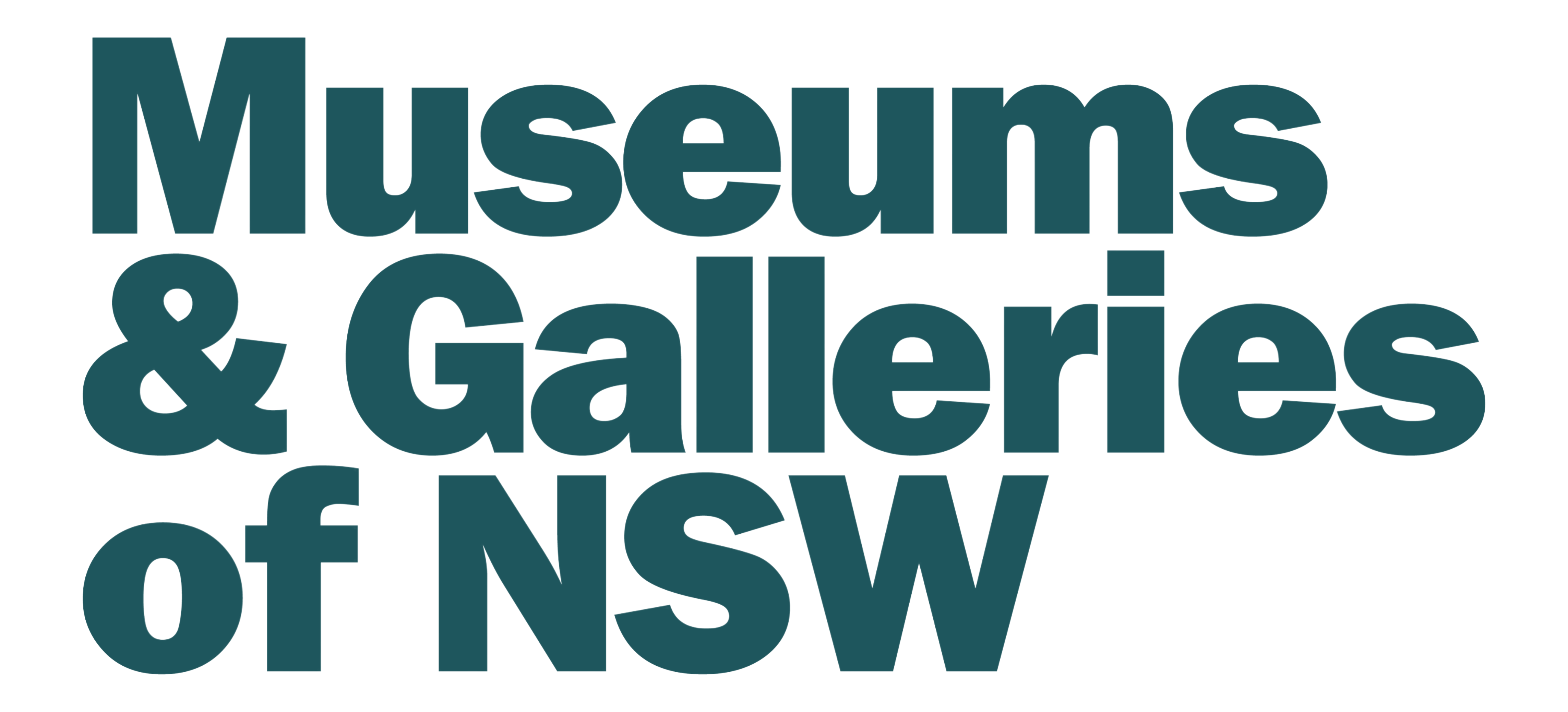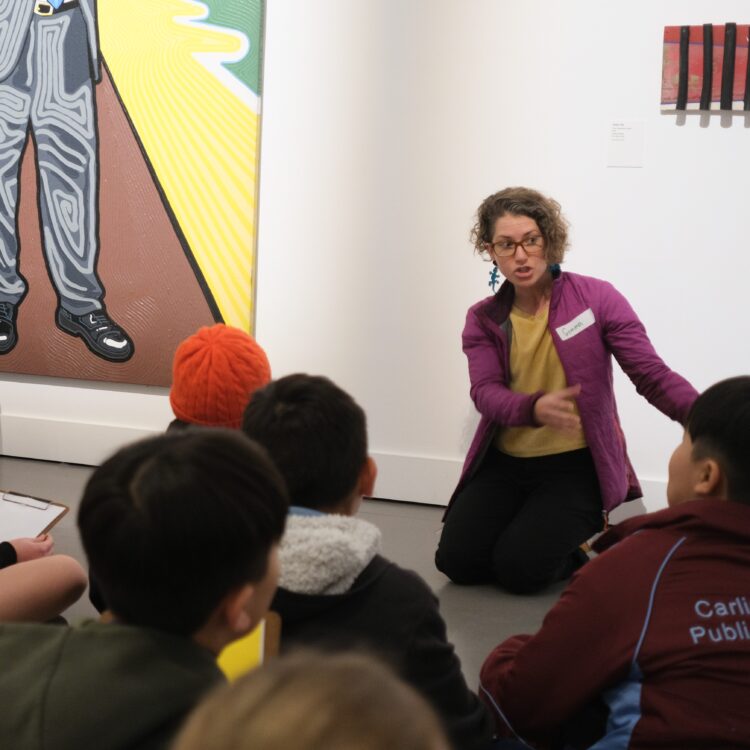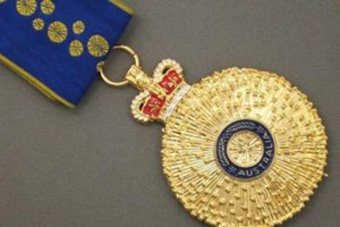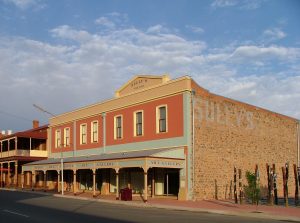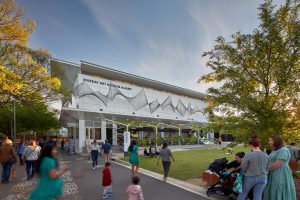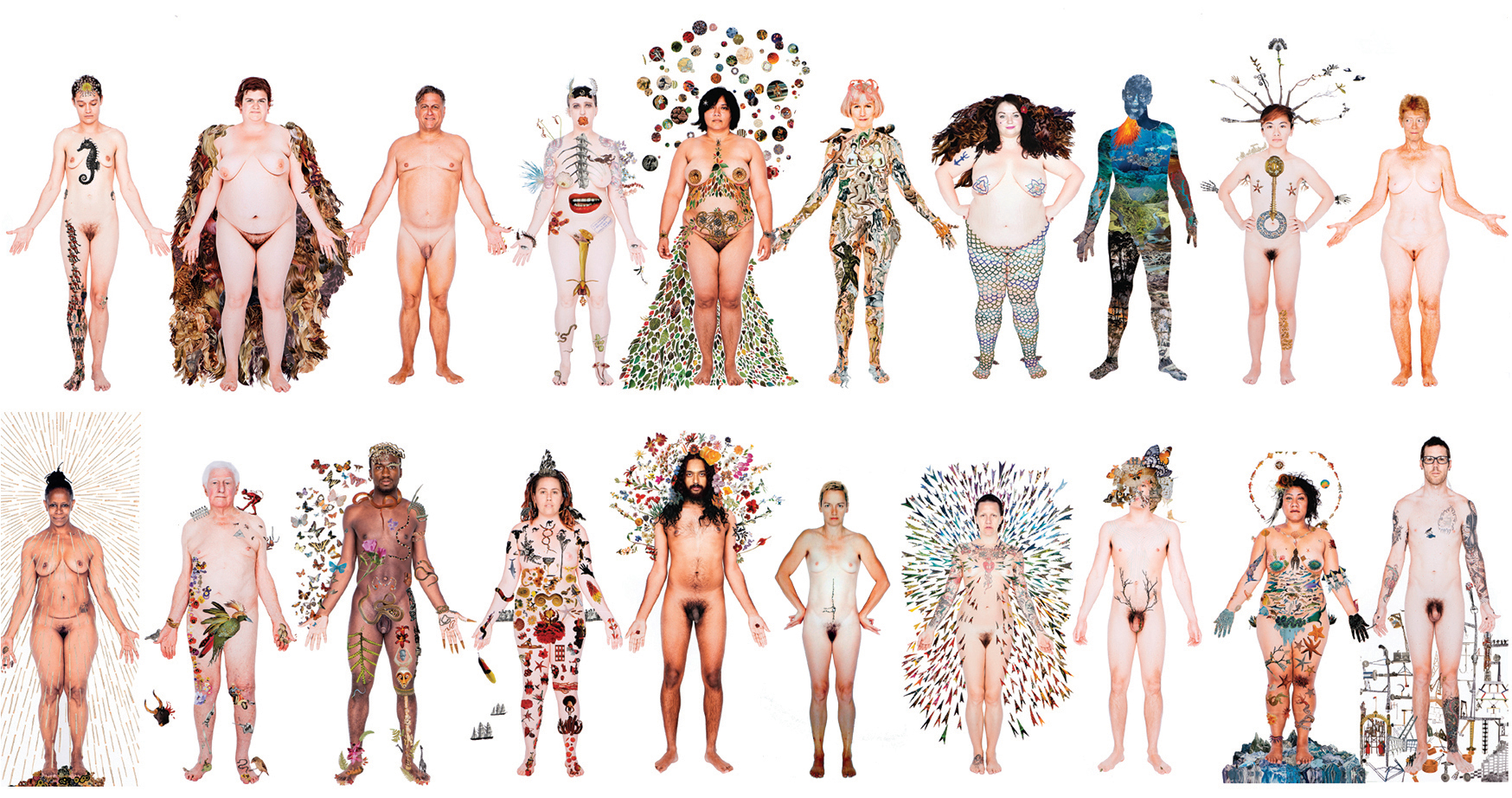
Deborah Kelly: No Human Being Is Illegal (in all our glory)
Deborah Kelly & collaborators, _No Human Being Is Illegal_ (in all our glory), 2014, pigment ink print on Hahnemühle papers bonded to aluminium, with collage from books and found materials, glue and UV protective varnishes, 200 x 109 cm. Courtesy the artist. Portrait Photographer: Sebastian Kriete. Created for the 19th Biennale of Sydney (2014).
SHOWCASE highlights the work of the contemporary artists and curators we work with and whose work you will see in galleries and museums across NSW and beyond in the near future.
Created for the 19th Biennale of Sydney (2014), Deborah Kelly’s No Human Being Is Illegal (In All Our Glory) comprises 20 life-sized photographic portraits realised through ongoing discussion, exchange and art making between the artist, the subjects and public participants.
The exhibition is currently on tour throughout Australia and is currently on show at Broken Hill Regional Art Gallery.
Rachel Arndt, M&G’s Gallery Programs and Touring Exhibitions Manager spoke with Deborah Kelly about her work and the touring exhibition No Human Being Is Illegal (In All Our Glory).
RA: Commissioned as a participatory collage project for the 19th Biennale of Sydney, an event now associated with protest against Australia’s treatment of asylum seekers, the work is both a celebration of difference and diversity as well as a critical analysis of discrimination and power. Was this your intention at the outset or did this evolve throughout the project?
DK: Well, the work was conceived in direct relation to the forces underpinning Australia’s inhuman detention regime but I must say, it was overtaken by history. Events of the moment caused the work to become much more critical and direct.
I spent several weeks across a period of months with a group of remarkable, devoted people in workshops in Albury, thanks to the MAMA residency M&G NSW supported.
RA: Central to the work is the participation of the 20 portrait subjects as well as participants in the ongoing collage workshops. How did you select participants and manage this process?
DK: I had no idea anyone would want to be in the work, as subjects, but the Biennale did a huge publicity push on the callout so around 250 beautiful and extraordinary people offered themselves for the 20 places. OH MY GOD! What to do? The solution was to act on democratic principles right from the start: the very first event of the work was a public voting process for everyone who had signed up to participate in the workshops. It was heartbreaking, actually, but at least we shared it and bonded over the difficulty of making the decisions.
RA: What’s your opinion of the recent controversy concerning nudity when the exhibition showed at Lismore Regional Gallery and Penrith Regional Gallery?
DK: Honestly, preposterous! I never think that online (specifically Facebook) kerfuffles are real news, but it ended up on TV and hundreds of people got involved in a kind of opinion-outrage-indignation-catastrophe. Phooey. It really impoverished the dialogue around the work, I thought. The gallery was really great though, passionately supporting the work’s true intentions.
RA: The exhibition is touring to a total of 10 regional galleries and art centres across Australia and you will be conducting many more workshops to add further collage to the works. How do you think the works will look at the end of the tour and what would you like to see happen along the way?
DK: I spent several weeks across a period of months with a group of remarkable, devoted people in workshops in Albury, thanks to the MAMA residency M&G NSW supported. We were lucky to spend time with portrait subject Simone O’Brien and have the slow time to think together, deeply and broadly, about how to honour her portrait. The brilliant suggestion of participating artist Jo Davenport to use the Japanese practice of Kintsuge to inform the work was such a powerful catalyst; then a genius goldsmith, Karin Tremonti, offered her expertise to the process and many townspeople got involved in sourcing the materials. I don’t know if many other places will have the time and resources to support such a deep collaboration around the ongoing work, but I’m also offering collage workshops around the portraits (not necessarily ON them, if you see what I mean) so that people can learn technique and process in short periods of time if that is what the various institutions can provide.
RA: Where can we find out more about your work and upcoming projects?
DK: I don’t have a website yet, but I do have a Facebook artist page, which I keep quite up-to-date.
I have a show opening at the UNSW Galleries in Paddington on 2 June. It’s called: Scenes From The Death Of Books.
A MAMA exhibition toured by Museums & Galleries of NSW. This project was created for the 19th Biennale of Sydney (2014) with the assistance of the Australian Government through the Australia Council, its arts funding and advisory body. The Artist or Curator Residency program is supported by the Copyright Agency Limited’s Cultural Fund.

